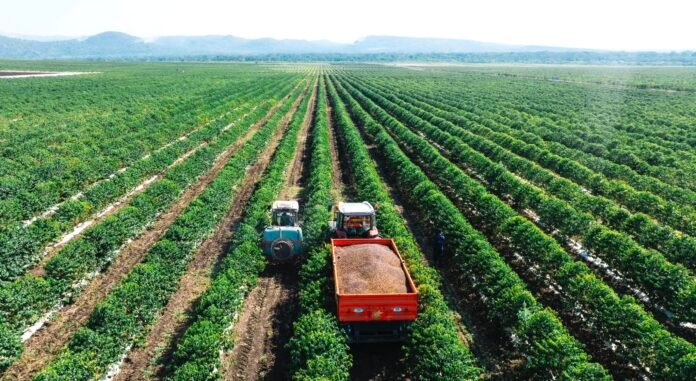Agricultural experts at the 6th Africa Resilience Forum have called on African governments to place greater value on farmers by recognizing them as vital economic contributors rather than passive recipients of aid.
Speaking at the event held in Abidjan from October 1–3, participants emphasized that sustainable food security and peace in Africa depend on empowering farmers and integrating them into policymaking and development initiatives.
“Agriculture is a dominant activity in crisis zones. We often say there can be no development without peace—but without food, there can be no peace,” said Roland Fomundam, CEO of Greenhouse Ventures, a Cameroonian company specializing in greenhouse production. “It’s time to involve farmers in discussions on agriculture. Too often, policies are made without their input. We must engage them in shaping the solutions that affect their lives.”
Beth Bechdol, Deputy Director-General of the Food and Agriculture Organization of the United Nations (FAO), echoed this sentiment, stressing that farmers should be recognized as a vital part of the private sector.
“Farmers invest, innovate, and create solutions,” she said. “If we want to make a meaningful impact, we need new ways to measure progress—for instance, tracking how much we’ve improved producers’ incomes over time.”
Both spoke during a panel discussion titled “Achieving Resilient and Transformative Impact for Large-Scale Food Security in Africa” on the second day of the Forum.
Other panelists included Abdilhakim Yusuf Ali Ainte, Director of the Food Security and Climate Department in the Office of the Prime Minister of Somalia; Martin Fregene, Director of the Agriculture and Agribusiness Department at the African Development Bank Group (AfDB); Rania Dagash-Kamara, Deputy Executive Director for Partnerships and Resource Mobilization at the World Food Programme (WFP); and Felista Nyakio, a Kenyan agripreneur.
Drawing on Somalia’s experience, Ainte highlighted the importance of private-sector engagement. “Somalia relied on its private sector, mobilizing $6 billion to strengthen human capital and save lives. The private sector is our most important resource—we must bring them to the table to find sustainable solutions,” he said.
AfDB’s Martin Fregene emphasized that rebuilding Africa’s food systems does not require reinventing the wheel. “Small and medium-sized enterprises produce most of the food we eat. We need to help them double their production and ensure their resilience,” he said.
Fregene added that the Bank supports agricultural producers through direct financing, innovation, climate-resilient infrastructure, and access to inputs, as well as training, extension services, and networking opportunities.
Kenyan agripreneur Felista Nyakio called for a change in social attitudes toward farming. “Farming is often viewed as degrading work. We need to show farmers that they are nation builders and teach children to appreciate agriculture from a young age,” she said.
The Africa Resilience Forum, organized by the African Development Bank Group, focused this year on the theme “Prevention for Better Action: Financing Peace in a Context of Development Cooperation in Transition.” The high-level event brought together policymakers and experts across the humanitarian-development-peace nexus to explore strategies for strengthening prevention efforts and promoting peace-driven investments on the continent.
Source:Africa Publicity








